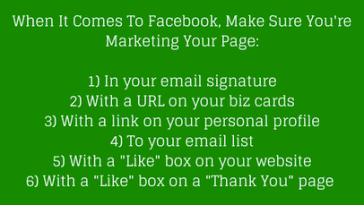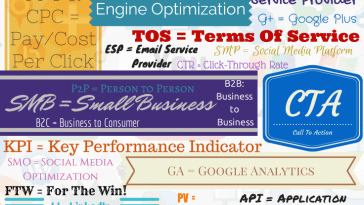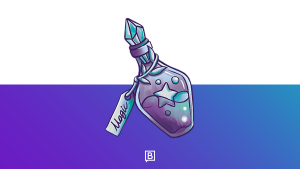Social media moves fast. Algorithms shift, audiences evolve, and what worked six months ago can already feel outdated.
And that’s why I believe so strongly in the power of social media mentors.
A great mentor doesn’t just tell you what to post. They teach you how to think strategically about connection, care, and conversion. And help you measure what actually matters: not vanity metrics like likes or views, but genuine engagement and results that impact your business.
At B Squared Media, we’ve always approached social media with this mindset. Whether it’s social listening, customer care, or content creation, mentorship has been part of our DNA since day one.
My team and I don’t just “manage” social media — we guide brands to understand it, shape it, and use it to build meaningful relationships.
Why Mentorship Matters More Than Ever
Social media has become a customer experience hub.
People expect quick responses, empathy, and authenticity from the brands they follow. But it’s not easy to keep up with the new tools, trends, and expectations that seem to appear every week.
That’s where mentorship comes in.
Having someone who’s been through those changes can help you focus on what’s really important. A mentor shortens your learning curve, offering a mix of strategy and support that helps you stay grounded even as the platforms evolve.
According to the HubSpot Social Media Marketing Report (2025), more than three-quarters of marketers say guidance from experienced social professionals directly improves their adaptability to new audience behaviors and content formats. I’ve seen that play out firsthand — not only with my team but also with the clients we work alongside.
Mentorship accelerates growth. It keeps you focused on the metrics that drive real business results: engagement that leads to loyalty, storytelling that inspires advocacy, and service that strengthens retention.
The Problem With the “Figure It Out Yourself” Approach
Yes, anyone can start a social media account. But building one that earns trust, engagement, and conversions? That takes experience.
Many brands still try to go it alone. They chase the latest trend, test out new features, or mimic what competitors are doing — hoping something will work. But without direction, those efforts often lead to burnout and wasted resources.
The Deloitte 2025 Digital Media Trends report highlights this perfectly: while nearly all U.S. internet users are active on at least one social platform, very few brands effectively measure why people engage with their content. That’s where mentorship changes everything.

[Source = Deloitte 2025 Digital Media Trends]
A mentor helps you move from random experimentation to intentional testing. They help you interpret your data, refine your message, and create a repeatable process that builds momentum instead of confusion. It’s not about guessing. It’s about growing.
What Makes a Great Social Media Mentor
Not everyone who’s active on social media can mentor others effectively. A great social media mentor blends real-world experience with empathy, strategy, and a genuine interest in helping others succeed.
Here’s what I look for — and try to embody — in mentorship:
- Strategic focus. A true mentor helps you identify what to measure and why. They shift your focus from vanity metrics to meaningful results like customer sentiment, community growth, and retention.
- Deep listening. Social listening isn’t just about tracking mentions. It’s about understanding what your audience feels, needs, and expects.
- Transparency. Mentors share the wins and the missteps. Real growth comes from honest reflection.
- Integration. Great mentors connect social media to other business areas — like sales, content, and customer service — to make everything work in sync.
- Humanity. The best mentors remind you that social media is about people, not platforms.
At B Squared Media, my team and I use these principles daily. We believe in listening before leading. We help our clients look beyond engagement numbers and toward the conversations and emotions driving those numbers.
As I wrote in How to Better Appreciate Customer Experience Professionals, the best results come from understanding people — not just processes.

[Source: Mastering Social Media CX]
When Do You Need a Social Media Mentor?
It’s not always obvious when you need help. But in my experience, there are some common signs that mentorship could make a big difference.
- You’re stuck in the metrics loop. If your reports sound impressive (“Our followers are up 10%!”) but you can’t connect that growth to actual outcomes, it’s time to reframe your KPIs. Mentorship helps you connect engagement to sales, loyalty, and retention — not just visibility.
- You’re doing more but seeing less. If you’re creating endless content but nothing’s clicking, you may be missing strategy. Mentors help you streamline efforts and focus on what your audience actually responds to.
- You’re unsure about tone. Every brand struggles to balance authenticity with professionalism. Mentors help you define boundaries and voice so you can show up consistently and confidently online.
- You’re not listening enough. Talking at your audience isn’t the same as listening to them. Mentors teach you how to use social listening to identify opportunities, detect sentiment shifts, and improve your customer experience.
- You’re missing opportunities. Mentors stay tuned to emerging platforms, AI-driven tools, and shifting algorithms. They help you test and adapt without losing sight of your brand’s mission.
Mentorship isn’t just about fixing what’s broken. Done right, it’s about elevating what’s already working.
Choosing the Right Social Media Mentor
The right mentor won’t just teach you tactics; they’ll help you think long-term. Here’s what I recommend considering when you’re evaluating potential mentors or agencies:
- Experience across platforms. Social media isn’t one-size-fits-all. Your mentor should understand how to tailor tone, content, and engagement across channels — from TikTok to LinkedIn. My team’s experience across multiple platforms helps clients maintain consistency while adapting to each audience.
- A balance of data and empathy. People now spend more than two and a half hours daily on social media, but what keeps them coming back is authenticity. A strong mentor uses both analytics and empathy to craft meaningful connections.
- Results that align with your goals. If your potential mentor only talks about reach or impressions, that’s a red flag. They should focus on results that support your business objectives. Think customer loyalty and advocacy. That’s how we define “results that matter” at B Squared Media.
- A collaborative teaching style. Mentorship should empower you, not take control away from you. Look for someone who shares frameworks, not formulas. Someone who teaches you to make better decisions, not depend on them forever.
That’s how I approach mentorship: as a partnership, not a transaction.
Why Mentorship Matters Inside Agencies Too
Mentorship doesn’t just happen between agencies and clients. It’s something that should happen within teams as well. At B Squared Media, senior strategists and community managers mentor newer team members to ensure every client benefits from shared experience and consistent quality.
That internal mentorship builds culture. It keeps our ideas fresh and our standards high. It also gives every member of the team the confidence to take ownership. This directly benefits our clients through faster responses, smarter strategies, and more thoughtful content.
When mentorship is part of an agency’s DNA, the results ripple outward. Clients feel the difference.
How Social Media Mentors Drive Growth
The impact of mentorship extends beyond social media metrics. It touches every part of a business.
- Alignment. Mentors help align social strategy with marketing, sales, and customer care goals.
- Efficiency. Teams make faster, smarter decisions with expert guidance.
- Retention. Employees and clients alike feel supported, which boosts satisfaction and loyalty.
- Reputation. A mentorship-driven culture creates consistency — and consistency builds trust.
Many of our clients started working with us because they wanted guidance first. Once they gained confidence and saw results, they naturally expanded into full-service partnerships. Mentorship lays that foundation.
Why Mentorship Is Core to B Squared Media’s Philosophy
Since founding B Squared Media, I’ve believed that social media should be both social and strategic. That belief has shaped how my team and I work with clients. We focus on teaching, not just telling.
We share what we learn, whether through our blog, webinars, or client sessions. And, we believe in transparency and empowerment. When our clients understand why a strategy works, they’re more invested in making it succeed.
As we shared in How Everyday Users Are Becoming Influencers, people want to feel part of something bigger. That’s true for customers. And it’s true for teams. Mentorship creates that sense of belonging.
At B Squared Media, mentorship isn’t an add-on. It’s a core part of how we do business. It’s what turns collaboration into partnership.
Building a Mentorship Mindset
Even if you don’t have an official mentor right now, you can still develop a mentorship mindset that strengthens your social media strategy.
Here’s how I recommend getting started:
- Ask for feedback. Don’t just look for validation. Seek insight from peers, team members, or agencies you trust.
- Document lessons learned. Every campaign teaches you something. Capture those insights so you can apply them next time.
- Keep learning. Attend industry webinars, read current reports, and follow credible experts.
- Share your knowledge. Mentorship isn’t one-way. Teaching others helps you refine your own expertise.

[Source = Our Yearly State of Social Care Report]
When you lead with curiosity and collaboration, you create space for mentorship to flourish — whether you’re learning from someone else or guiding someone newer to the field.
Final Thoughts: Mentorship Is the Future of Social Media Success
Social media isn’t slowing down, and neither should your growth. But growth doesn’t come from posting more. It comes from learning, listening, and leading with purpose.
That’s what social media mentors help you do. They bring perspective, structure, and clarity to an ever-changing landscape.
At B Squared Media, my team and I believe mentorship is one of the most powerful ways to elevate results that matter — the kind that drive loyalty, advocacy, and long-term business success.
If you’re ready to move from guessing to growing, maybe it’s time we connect. Because mentorship isn’t just about learning social media — it’s about mastering the art of meaningful connection.
FAQs About Social Media Mentors
1. What is the best way to find a reputable and effective social media marketing mentor? The best mentors do the kind of work you admire. Look for professionals who share useful insights publicly, through blog posts, podcasts, or webinars, and who consistently demonstrate success in the areas where you want to grow. I always suggest observing how potential mentors communicate online: Do they educate, listen, and lead with empathy? That’s often the clearest sign they’ll be a good fit.
2. Should I pay for social media marketing mentorship, or should it be free—and what are the differences between coaches, consultants, and mentors? It depends on your goals. Many mentors offer informal guidance for free, especially within professional communities. But if you’re looking for structured, one-on-one development, paid mentorship is often worth the investment. A coach helps you build specific skills; a consultant delivers expertise or strategy for a project; and a mentor helps you grow holistically by sharing experience, guidance, and perspective. I see mentorship as a long-term relationship focused on progress, not transactions.
3. What questions should I ask a potential social media marketing mentor before committing to working with them? Ask about their experience, approach, and expectations. Some good questions include:
- How do you define success for your mentees?
- How often do you meet or communicate?
- Can you share an example of a challenge you helped someone overcome?
- What do you expect from me as a mentee?
These questions help you gauge compatibility. The best mentorships are built on trust, respect, and a shared commitment to learning.
Latest posts by Brooke B. Sellas (See All)
- Ready To Find Your Marketing Magic? Take Our Quiz! - November 19, 2025
- Social Media Customer Psychology: Understanding Expectations Elevates Social Care - November 12, 2025
- Seeking A Social Media Mentor? How To Find The Right One To Help You Boost Results That Matter - November 5, 2025













